THE BLACKS IN CUBA
By Sergio Giral
Racial discrimination in Cuba had been a direct inheritance from slavery. When Cubans began the Independence War against Spain, Black Cubans - free or slaves - strongly supported the revolt. Racial divisions and lack of unified leadership undermined these efforts until the rise of Independence heroes, the poet Jose Marti, and the mulatto liberator warrior, Antonio Maceo. For centuries, Black Cubans had played a recognized role in the struggle for independence in a truly multiracial term. Marti declared the necessity of a united front beyond racial differences to liberate Cuba from the colonial Spanish dominium, declaring that being Cuban was "more than white, more than black”.
By Sergio Giral
Racial discrimination in Cuba had been a direct inheritance from slavery. When Cubans began the Independence War against Spain, Black Cubans - free or slaves - strongly supported the revolt. Racial divisions and lack of unified leadership undermined these efforts until the rise of Independence heroes, the poet Jose Marti, and the mulatto liberator warrior, Antonio Maceo. For centuries, Black Cubans had played a recognized role in the struggle for independence in a truly multiracial term. Marti declared the necessity of a united front beyond racial differences to liberate Cuba from the colonial Spanish dominium, declaring that being Cuban was "more than white, more than black”.
In Republican Cuba, only a few outstanding Black-Cubans who distinguished themselves by very exceptional Western educational standards had access to white privileged circles. Black Cubans usually worked in cane fields or as construction workers in urban areas, and almost always maintained low-income professions, which further deprived them of any social stay in Cuba.
In 1959, Fidel Castro attacked the existing racial discrimination and in years immediately social, economic and political conditions seem to disappear, encouraging the idealistic view that it was possible to forget about racism. The case was declared solved. Since then, discussions and studies of race and racism providing an accurate picture of racial divisions on the island have been officially silenced and provoked for many years that any approach toward racial inequalities in Cuba were considered shameful and unnecessary and finally a Taboo issue. Regardless the Cuban socialist government promised achievements such as free education and free health care fo all, Cuba continuously fall down into economic crisis lower down white middle class into the traditional Black population economical status, creating a false impression of an egalitarian society. Cubans living under a totalitarian have developed a system of survival for their physical and psychological needs according to what restrictions are imposed the State. Consider well the Black population. Along fifty years of Socialist regimen, millions of Cubans abandoned the island and settled in South Florida with easiest opportunity for assimilation into U.S. society. Assimilation, however, proved more to difficult to attain for Black and mestizo, especially in the traditional racial social structure of South Florida. Due to this particular Black Cubans have less access to dollars, since Cuban exiles that support their families in Cuba are predominantly white. The difficult decade following the fall of the Soviet Union caused economic hardships for all Cubans. The government stopped numerous social services and the country struggled with widespread shortages during the Special Period. Consider well the Black population. Since then Castro government began legalizing private enterprises for profit trying to bring Cuban economy out of its deep recession, but this reforms served only to exacerbate the racial disparity. More and more Cubans have opened their own business and white entrepreneurs are more economically successful in comparison to the Blacks. For many years Black in Cuba were wrongly perceived as supporters of the Castro’s regime, due to the myth of an improved quality of life. Opposite to this believe, Black Cubans suffer discrimination and are considered alleged delinquents and drifters by the authorities. The penal population is almost exclusively Black. Currently, blacks and mulattos continue to be discriminated against in government leadership positions. In the Cuban dissident movement Blacks and mestizos have played a significant role. Among the many prisoners of conscience in Cuba, Jorge Luis Garcia Pérez “Antunez” is an undeniable example of courage, suffering harassment and torture for his hunger strikes demanding Human Rights and political freedom. On February 2010, Orlando Zapata Tamayo, a Cuban Mason and political activist died in prison after fasting for more than 80 days. Guillermo Fariñas, an independent journalist who has been involved in a peaceful campaign for freedom of expression in Cuba, started a hunger strike that lasted 4 months calling for the release of prisoners of conscience. Fariñas was awarded the Andrei Sakharov Prize for Freedom of Thought by the European Parliament and Cuban authorities denied him the exit permit needed to travel outside the country. Dr. Oscar Elias Biscet, a Black man, is one of the 75 dissidents imprisoned in 2003 by the Cuban authorities. During the Black Spring in 2003, the Cuban government arrested 75 human rights defenders and independent journalists accusing them of "acts against the independence or the territorial integrity of the state, illegal organizations accepting money from the United States Interest Section in Havana and of terrorist activities. Biscet was violently arrested and beaten while discussing a petition of Human Rights with 16 other dissidents, condemned to 25 years sentence for "counter-revolutionary activities" and being kept in an infrahuman prison cell and finally freed in 2011. These are among others Black Cuban dissidents. Ladies in White are spouses, mothers and daughters of those men and women who have been arrested for exerting the freedom of expression and thought, and want to obtain the Human Righs in Cuba. This pacific dissidence group gather in churches to pray for their relatives and after mass hold a ritual procession from to a nearby park, wearing white clothing and flower in their hands symbol of a pacifist protest. For there political integrity Ladies in White were awarded the Sakharov Prize fore Freedom of though in 2005. Opposite to this recognition mobs have attacked the Ladies in White, yelling insults at them and assisting the police to throw them into police buses, detained and threatened of contempt for the revolutionary government with a sanction of deprivation of liberty for one to three years. Laura Pollan who founded the dissident group after her husband was jailed in a 2003, died on 2011. Berta Soler substitued Pollan in the leading of this corageous movement. Soler is a Black woman.
This reality overcomes any form of racims and discrimination that might be inherit from the past and assures the achievement of Human Rights in Cuba regardless race or color. The future of Cuba depends on all Cubans.




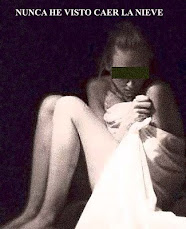



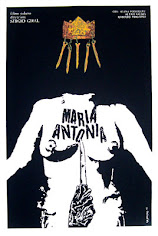

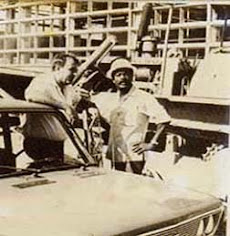
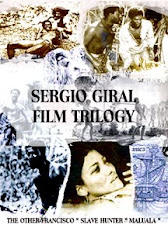




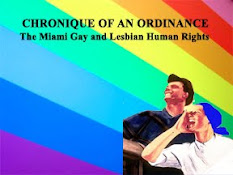

No comments:
Post a Comment